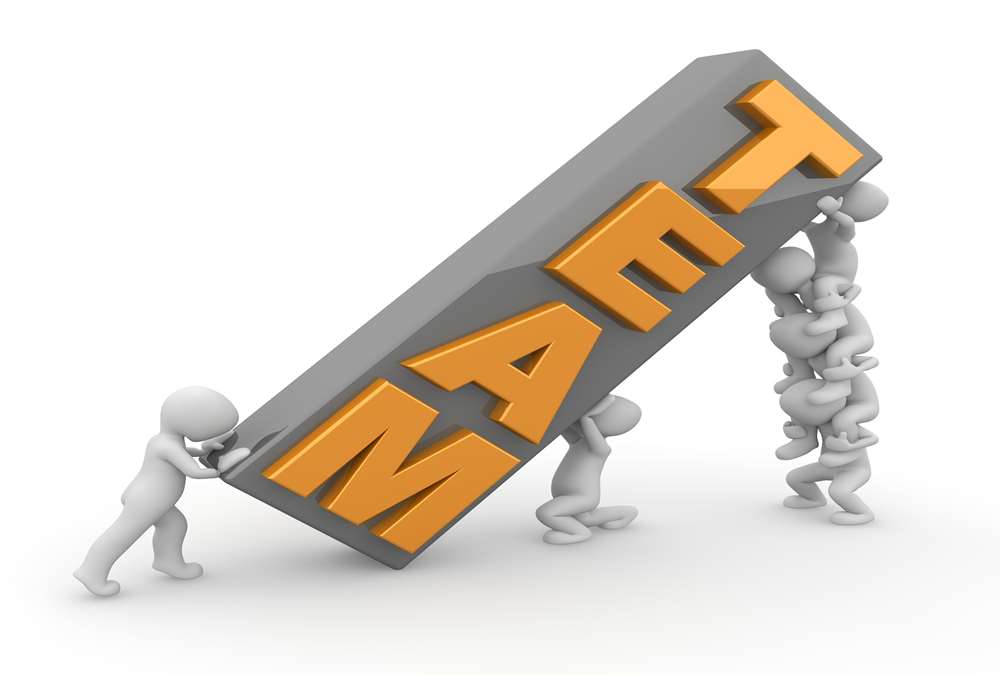- Home
- Business Processes
- Industry Knowledge
- Aerospace Industry
- Automotive Industry
- Banking Domain
- BFSI Industry
- Consumer/ FMCG Industry
- Chemicals Industry
- Engineering & Construction
- Energy Industry
- Education Domain
- Finance Domain
- Hospitality Domain
- Healthcare Industry
- Insurance Domain
- Retail Industry
- Travel and Tourism Domain
- Telecom Industry
- Leadership Skills
- eLearning
- Home
- Domain Knowledge
- Change Leadership
- Team Foundation in Forming Stage
Team Foundation in Forming Stage
This is the first stage of team development. This is the stage when the foundation of the team is laid. During the Forming stage, team members have a high dependence on their leader for guidance. Learn the practical strategies you can use during this stage to help your team develop into a highly effective performing team.
Good team development begins on day one and forming is the “Getting to Know You” stage. You can compare this stage with your first day at school as a child, or perhaps with your first day on a new job. Some obvious behaviors are; everyone is polite, overly cautious, and generally doesn't know what to expect. This is the first stage of group development – Forming where the team members are trying to get to know one another and getting comfortable with one another.
Establishing Roles and Responsibilities
In the Forming stage, the team comes together and members try to know each other and establish a common understanding and formulate roles and responsibilities. Team members may be excited and enthusiastic, but they may also be anxious. In this stage, the members try to explore and understand the behavior of the team members. They make their efforts in understanding the expectations of the peer team members, are polite, and exploring how to gain acceptability and fitment into the team. Because everything is new there is a fair amount of confusion and anxiety as members are naturally trying to understand their own roles, the roles of the other team members, and their purpose in the group. This is entirely natural and to be expected. People are unsure, suspicious, and nervous. Productivity might be low as people try to put their best foot forward.
Exploration by Members
It takes time for any new team to become a cohesive unit, “Forming” starts with lots of exploration as group members get to know one another. Think of this stage as an exploration period in which individual roles and responsibilities are being sorted out. In this stage, team members are generally enthusiastic and motivated by a desire to be accepted. They're typically very polite to each other and trying to figure out similarities and differences with others. First impressions play a key role as people try to figure out the similarities and differences. Issues that may arise are questions of whether each person feels like they belong to the group, whether other members can be trusted, and who is in charge.
Orientation is the most important task in the forming stage and members are looking towards the leader to provide the required direction. During the Forming stage, team members have a high dependence on their leader for guidance and the leader's task is directing, so that the group can get coordinated in their efforts.
Setting Operational Structures
This is also a good time to look at how the group is organized because the group has not yet molded into a strong, effective unit, therefore it's still relatively easy to reorganize the group if required. It's also helpful to set group ground rules, which are expectations about how work will be done, decisions will be made, and how people will treat each other. In short, the leader has a wonderful opportunity to be sure that the right people are in the right place using the right process. “Forming” stage is usually short, and sometimes may only last for a single meeting where the team members get introduced.
Forming an effective and cohesive team is fundamental to the overall success of the team and pulling the right team together from the start has benefited far beyond just completing tasks on time. Now we will focus on different strategies for dealing with issues that may arise during the first stage, “Forming”. You'll learn strategies for selecting high-performing team members most suited for your project or team, as well as recommendations for performing proper introductions, clarifying team purpose and context, and making sure team members understand their responsibilities. As a leader, you can use several strategies during this stage to build an effective team.
Tips for Forming Stage - Leaders:
Suggestions for the Team Leader/Member in this stage:
- Search out the people in your organization with the necessary skills and the time to be part of your team
- Provide team structure
- Ensure that members feel comfortable and knowledgeable about the group
- Give clear information on the project and goal or ask for clarity
- Clarify roles and responsibilities
- Clarify the team's goals and outline the planned schedule
- Clarify the individual role and how they will be contributing to the overall accomplishment
- Build enthusiasm by talking about why the group will be successful
- Promote an open and supportive environment
- Encourage relationship building
- Practice constructive team behaviors
- Educate about phases of team development – this will make it easier to move out of more difficult phases.
Characteristics of the Forming Stage:
- Exploration - Trying to know each other
- Focused - Trying to understand similarities and differences
- Confusion/Anxiety - Trying to gain acceptability
- Lower productivity – Everyone trying to put their best foot forward
- Leadership – Generally directive to set the tone
- Risk: Avoidance of conflict
- Learning: Gaining understanding about opportunities and challenges
- Excitement: Motivation and excitement about the project.
Related Links
You May Also Like
-
Authentic leadership is an approach to leadership that emphasizes building the leader's legitimacy through honest relationships with followers which value their input and are built on an ethical foundation. The authentic leader acts upon his or her values and beliefs, and inspires others to do the same, is committed to know and develop oneself. Are you committed to developing yourself; know your motivations and the purpose of your leadership? Read this article to know more about authentic leadership style and discovering your authentic self.
-
Team Foundation in Forming Stage
This is the first stage of team development. This is the stage when the foundation of the team is laid. During the Forming stage, team members have a high dependence on their leader for guidance. Learn the practical strategies you can use during this stage to help your team develop into a highly effective performing team.
-
Participative leadership is one of the most effective styles and creates higher productivity, better contributions from group members, and increased group morale. The democratic leadership style consists of the leader sharing the decision-making abilities with group members by promoting the interests of the group members. Learn more about this leadership style and situations when it is effective.
-
How often do you have a plan for how you are going to spend your day but you aren't able to complete the tasks on your plan because of unimportant tasks, interruptions, or your own procrastination? Wouldn't it be great to be able to manage your schedule and your time while avoiding, or at least controlling, these time stealers? Learn the strategies to manage your schedule while still handling interruptions and demands on your time.
-
A manager or an employee in an organization who is experiencing a high level of stress may develop high blood pressure, ulcers, irritability, difficulty in making routine decisions, loss of appetite, accident proneness, and the like. These can be subsumed under three general categories, physiological, psychological, and behavioral symptoms. Stress can give rise to a number of changes.
-
Tips for Effective Time Management
After studying and analyzing how time is spent, why time is wasted, and where time is wasted you need to decide about the changes required for effective utilization of time. For this purpose, a large number of remedial measures can be taken by you. The first and foremost determinant of a planned and purposeful utilization of time is to develop consciousness of the value of time at all levels of the organization. Planning, goal setting, and defining priorities are concerns to addressed immediately.
-
Recognizing Stress & its Sources
As an individual, you almost certainly know what stress feels like. Stressors are events or situations to which people must adjust. Stressors may be physical or psychological in nature. The level of severity of stress is determined not merely by exposure but the intensity, duration, and frequency of stressors. The sources of stress are many. They arise from multiple areas both with the individual and from the environment.
-
Benefits of Teams in Workplace
The use of formal work teams is commonplace in modern organizations. But why we have teams? What are the benefits or advantages that teams provide for organizations and employees? Do we really need to adopt formal team structures and use team-building approaches in organizations? Read this article to explore and learn the benefits of having formal teams in organizations.
-
Team Development by Building Trust
As your team begins to work together, you need to establish a way each team member can exchange ideas and build mutual trust. Successful groups are built on trust and collaboration. A free exchange of ideas, in an open environment, will allow your team to get to know each other and enable you to check on how they work together. Learn some tips to help build team trust and establish personal bonds.
-
Laissez-faire is a style of leadership that affords the group members a great deal of independence. Tasks are delegated to the group members and they are responsible to see the project through to fruition. Research has shown that this style of leadership leads to the lowest levels of productivity. This article explains this style and covers the implications of having a hands-off approach and the situations where this style could be effective.
Explore Our Free Training Articles or
Sign Up to Start With Our eLearning Courses

About Us
Learning
© 2023 TechnoFunc, All Rights Reserved










